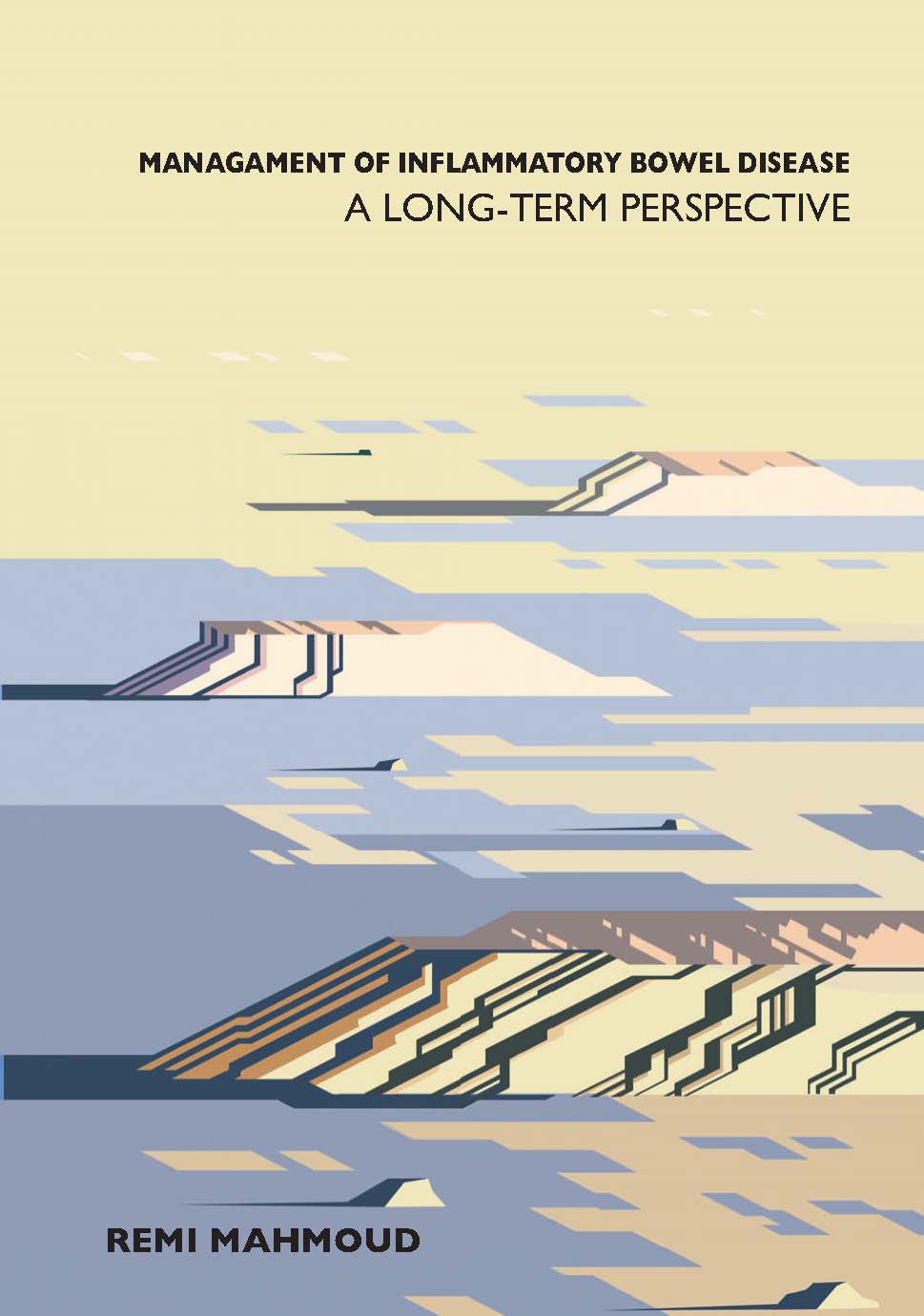Sep 29: Long-term management of inflammatory bowel disease

Withdrawal of anti-TNFα treatment in patients with well-controlled inflammatory bowel disease is associated with a high risk of disease recurrence after discontinuation of treatment. In his PhD thesis, Remi Mahmoud (UMC Utrecht) suggests that endoscopically confirmed remission of disease and measurement of serum drug levels may help to predict the relapse risk.
Crohn’s disease and ulcerative colitis are inflammatory bowel diseases (IBD), characterized by relapsing-remitting inflammation of the gastrointestinal tract. IBD patients may experience abdominal pain, diarrhea, rectal bleeding, weight loss and severe fatigue. In the long term, inflammation irreversibly damages the gut and increases the risk of colorectal cancer (CRC). Since approximately 2000, new drugs including anti-tumor necrosis factor-alpha (anti-TNFα) agents have improved the management of IBD. Simultaneously, advances have been made in endoscopic techniques for visualization of the intestinal mucosa and resection of (pre)malignant lesions. In his PhD thesis, Remi Mahmoud (Department of Gastroenterology & Hepatology, UMC Utrecht) focused on the long-term management of IBD.
Stopping treatment
In this PhD thesis, Remi Mahmoud and colleagues investigated in a real-world setting whether patients with longstanding disease remission during anti-TNFα maintenance therapy (with infliximab or adalimumab) could safely withdraw treatment. Their studies indicate that withdrawal of co-medication with immunomodulators (for example thiopurines or methotrexate) is relatively safe. However, the study also confirmed that withdrawal of anti-TNFα agents is associated with a high relapse risk. Only in highly selected patients, for example those with complete endoscopic healing, the risk of relapse was relatively low. Therefore, the investigators suggest that endoscopically confirmed remission of disease as well as predictive biomarkers may help to predict the relapse risk.
Prevention of colorectal cancer
Mahmoud and co-workers also investigated the prevention of colitis-associated colorectal cancer (CRC). Screening for CRC is performed with colonoscopies to identify and resect pre-malignant lesions (also called dysplasia). The investigators assessed potential risk factors for CRC in patients with IBD, including post-inflammatory polyps (PIPs). Presence of PIPs was associated with greater severity and extent of colon inflammation and higher rates of colectomy, but not with development of CRC. As a consequence, surveillance interval should not be shortened solely based on the presence of PIPs. Remi Mahmoud concluded that knowledge of risk factors for CRC in patients with IBD may help to determine the optimal surveillance interval. This would allow prevention and/or early identification of CRC in high-risk patients, and reduce the burden and health care costs for patients at low risk of CRC.
PhD defense

Remi Mahmoud (1992, Arnhem) defended his PhD thesis on September 28, 2023 at Utrecht University. The title of his thesis was “Management of inflammatory bowel disease – a long-term perspective.” Supervisor was prof. dr. Bas Oldenburg (Department of Gastroenterology and Hepatology, UMC Utrecht). Co-supervisor was dr. Bindia Jharap (Meander Medical Center, Amersfoort). As part of his gastroenterology training, Remi currently works as a resident at the Department of Internal Medicine at meander Medical Center in Amersfoort.
